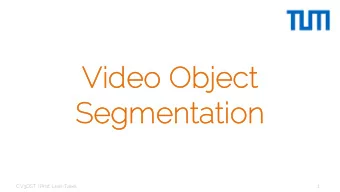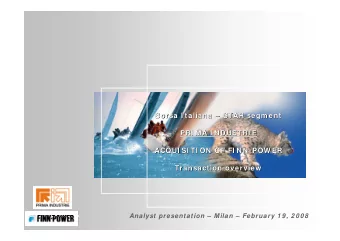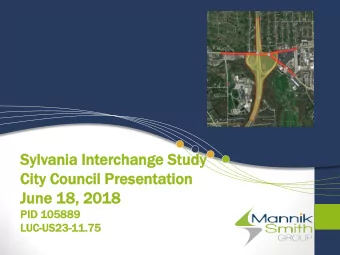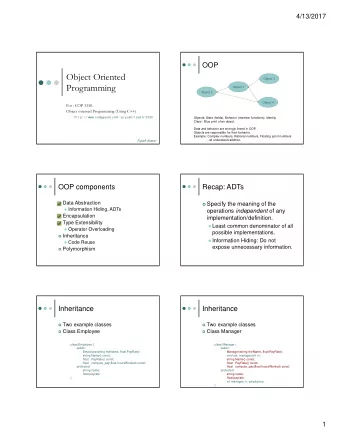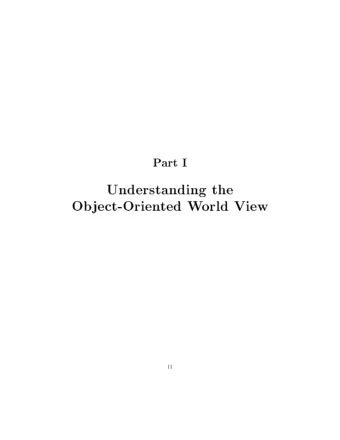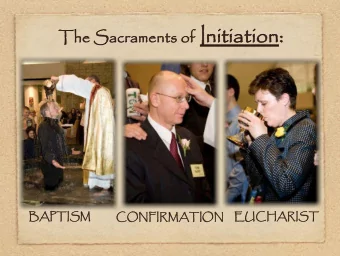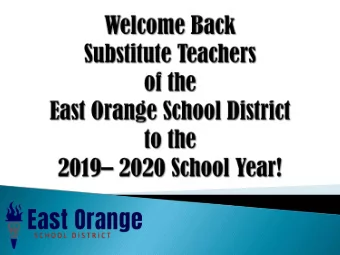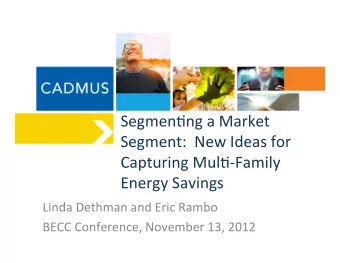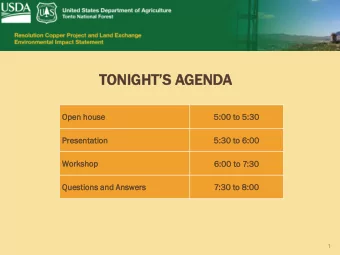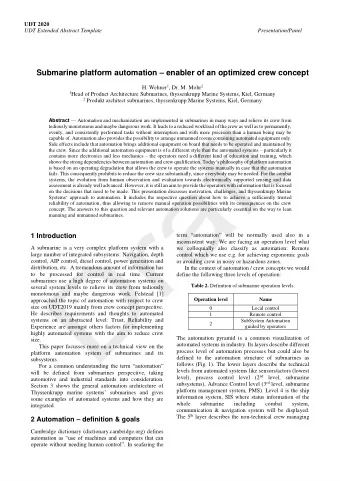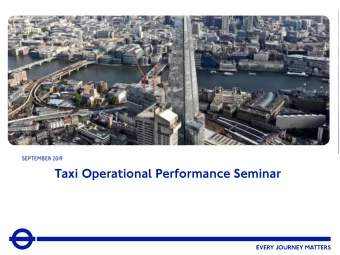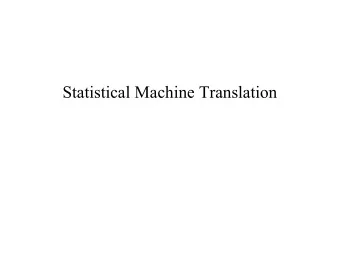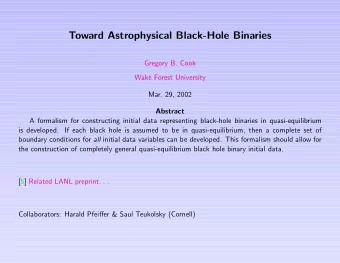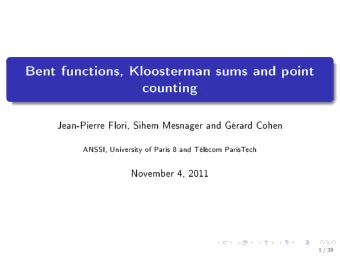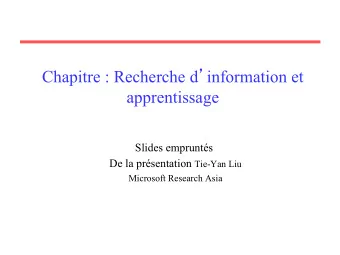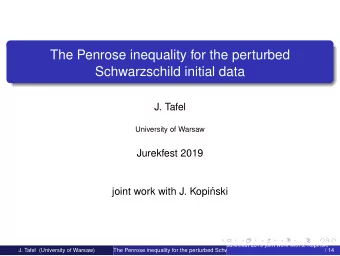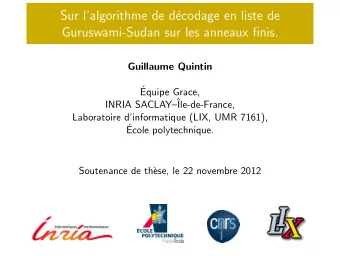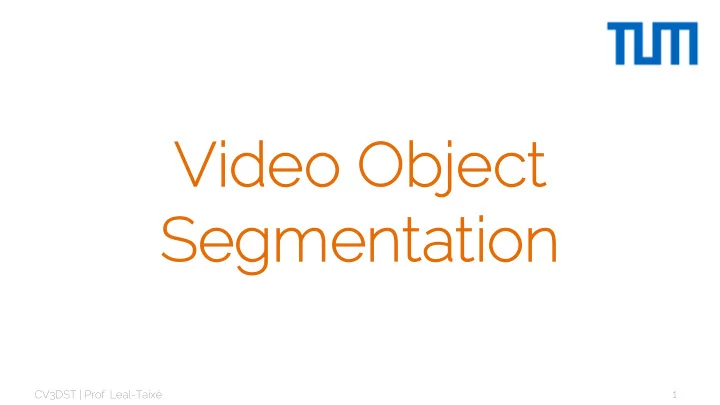
Vi Video Ob eo Object ject Segm Segmen enta tati tion on - PowerPoint PPT Presentation
Vi Video Ob eo Object ject Segm Segmen enta tati tion on CV3DST | Prof. Leal-Taix 1 Vi Video deo Objec ject Seg egmen entat ation on Object Detection Object Tracking This lecture Object Segmentation Video Object
Vi Video Ob eo Object ject Segm Segmen enta tati tion on CV3DST | Prof. Leal-Taixé 1
Vi Video deo Objec ject Seg egmen entat ation on Object Detection Object Tracking This lecture Object Segmentation Video Object Segmentation CV3DST | Prof. Leal-Taixé 2
Vi Video deo Objec ject Seg egmen entat ation on • Goal: Generate accurate and temporally consistent pixel masks for objects in a video sequence. CV3DST | Prof. Leal-Taixé 3
VO VOS: som ome e chal allen enges es • Strong viewpoint/appearance changes CV3DST | Prof. Leal-Taixé 4
VO VOS: som ome e chal allen enges es • Strong viewpoint/appearance changes • Occlusions CV3DST | Prof. Leal-Taixé 5
VO VOS: som ome e chal allen enges es • Strong viewpoint/appearance changes • Occlusions • Scale changes CV3DST | Prof. Leal-Taixé 6
VOS: som VO ome e chal allen enges es • Strong viewpoint/appearance changes • Occlusions Hard to make • Scale changes assumptions about • Illumination object’s appearance • Shape Hard to make • … assumptions about object’s motion CV3DST | Prof. Leal-Taixé 7
VO VOS: tas asks Semi-supervised Unsupervised (zero- (one-shot) video shot) video object object segmentation segmentation We get the first frame We have to find the ground truth mask, we know objects as well as their what object to segment masks CV3DST | Prof. Leal-Taixé 8
VO VOS: tas asks Motion segmentation, salient object detection.. Semi-supervised Unsupervised (zero- (one-shot) video shot) video object object segmentation segmentation We get the first frame We have to find the ground truth mask, we know objects as well as their what object to segment masks CV3DST | Prof. Leal-Taixé 9
VO VOS: tas asks This lecture Semi-supervised Unsupervised (zero- (one-shot) video shot) video object object segmentation segmentation We get the first frame We have to find the ground truth mask, we know objects as well as their what object to segment masks CV3DST | Prof. Leal-Taixé 10
Supe Superv rvised Video Obj bject Se Segm gment ntation Given: First-frame ground truth Goal: Complete video segmentation Task formulation • – Given: segmentation mask of target object(s) in the first frame – Goal: pixel-accurate segmentation of the entire video – Currently a major testing ground for segmentation-based tracking CV3DST | Prof. Leal-Taixé 11
VO VOS Dat atas aset ets • Remember that large-scale datasets are needed for learning-based methods DAVIS 2016 DAVIS 2017 YouTube-VOS 2018 (30/20, single objects, (60/90, multiple (3471/982, multiple first frames) objects, first frames) objects, first frame where object appears) https://davischallenge.org https://youtube-vos.org CV3DST | Prof. Leal-Taixé 12
Bef Befor ore e we e get et star arted… ed… • Pixel-wise output • If we talk about pixel-wise outputs and motion, there is a concept in Computer Vision that we need to know first CV3DST | Prof. Leal-Taixé 13
Optical l flo low CV3DST | Prof. Leal-Taixé 14
Opt Optica cal l flo flow • Input: 2 consecutive images (e.g. from a video) • Output: displacement of every pixel from image A to image B • Results in the “perceived” 2D motion, not the real motion of the object CV3DST | Prof. Leal-Taixé 15
Opt Optica cal l flo flow CV3DST | Prof. Leal-Taixé 16
Opt Optica cal l flo flow CV3DST | Prof. Leal-Taixé 17
Opt Optica cal l flo flow with CNNs NNs • End-to-end supervised learning of optical flow P. Fischer et al. „FlowNet: Learning Optical Flow With Convolutional Networks“. ICCV 2015 CV3DST | Prof. Leal-Taixé 18
Opt Optica cal l flo flow with CNNs NNs P. Fischer et al. „FlowNet: Learning Optical Flow With Convolutional Networks“. ICCV 2015 CV3DST | Prof. Leal-Taixé 19
Fl FlowNet: a : arc rchit itecture ure 1 1 • Stack both images à input is now 2 x RGB = 6 channels CV3DST | Prof. Leal-Taixé 20
Fl FlowNet: a : arc rchit itecture ure 2 2 • Siamese architecture CV3DST | Prof. Leal-Taixé 21
Fl FlowNet: a : arc rchit itecture ure 2 2 • Two key design choices How to combine the information from both images? CV3DST | Prof. Leal-Taixé 22
Cor Correl elation ion layer er • Multiplies a feature vector with another feature vector Fixed operation. No learnable weights! CV3DST | Prof. Leal-Taixé 23
Cor Correl elation ion layer er • The matching score represents how correlated these two feature vectors are CV3DST | Prof. Leal-Taixé 24
Cor Correl elation ion layer er • Hint for anyone interested in 3D reconstruction: Useful for finding image correspondences A Find a transformation from image A to image B B I. Rocco et al. “Convolutional neural network architecture for geometric matching. CVPR 2017. CV3DST | Prof. Leal-Taixé 25
Fl FlowNet : a : arc rchit itecture ure 2 2 • Two key design choices How to obtain high- quality results? How to combine the information from both images? CV3DST | Prof. Leal-Taixé 26
Ca Can we e do o VOS wit ith OF? • Indeed! • Better if we focus on the flow of the object • We can improve segmentation and OF iteratively (no DL yet) Y.H. Tsai et al. “Video Segmentation via Object Flow“. CVPR 2016 CV3DST | Prof. Leal-Taixé 27
OS OSVOS VOS CV3DST | Prof. Leal-Taixé 28
First Fir st-fra frame fi fine-tu tuni ning ng • Goal: Learn the appearance of the object to track • Main contribution: separate training steps – Pre-training for ‘objectness’. – First-frame adaptation to specific object-of-interest using fine-tuning. CV3DST | Prof. Leal-Taixé 29
On One-sh shot V VOS Finetuning Training Pre-trained 1 2 3 Base Network Parent Network Test Network Pre-trained on ImageNet Trained on DAVIS training set Fine-tuned on frame 1 of test sequence Results on frame N of test sequence Edges and Learns how to Learns which basic image do video object to features segmentation segment CV3DST | Prof. Leal-Taixé S. Caelles et al. “One-shot video object segmentation”.CVPR 2017 30
On One-sh shot V VOS • One-shot: we see the first frame ground truth • Finetuning step: this is used to technically overfit to the test sequence first frame. Overfitting is therefor used to learn the appearance of the foreground object (and the background!) • Test time: each frame is processed independently à no temporal information CV3DST | Prof. Leal-Taixé S. Caelles et al. “One-shot video object segmentation”.CVPR 2017 31
Fr Frame me-ba based segm gmentation • PRO: it recovers well from occlusions (unlike mask propagation or optical flow-based methods) • CON: it is temporally inconsistent CV3DST | Prof. Leal-Taixé 32
Ex Exper erimen iments: hig ighly dynamic mic scen enes es CV3DST | Prof. Leal-Taixé 33
Ex Experiments: accuracy y vs annotations Two camels! Another annotation where the 2 nd camel is background Another Mask is annotation refined CV3DST | Prof. Leal-Taixé 34
Fin Finetunin ing ti time Object flow 11.8 pp. 102ms – One forward pass (parent network) CV3DST | Prof. Leal-Taixé DAVIS dataset 35
Obs Observ rvations • OSVOS does not have an object of object shape. • It is a pure appearance-based method, if the foreground (or the background) appearance changes too much, the method fails CV3DST | Prof. Leal-Taixé 36
In Intro roduc ucing Semantics First frame
In Introducing Semantics He was occluded in the first frame, therefore the network never learned he was background. CV3DST | Prof. Leal-Taixé 38
Bu But wai ait…. • We have already seen models that have an idea of object shape.. • Instance segmentation methods! CV3DST | Prof. Leal-Taixé 39
OS OSVOS OS-S: S: Se Semanti ntic c propagati tion Semantic prior branch that gives us proposals to select from Semantic Prior Semantic Semantic Instance Selection & Segmentation Propagation Instance Proposals Top Matching Instances Conditional CNN First-Round Input Image ��������� Foreground Estimation Foreground Estimation Result Appearance Model Prior: semantics stay coherent throughout the sequence K.-K. Maninis et al. “Video object segmentation without temporal information”. TPAMI 2018 CV3DST | Prof. Leal-Taixé 40
OS OSVOS OS-S: S: Se Semanti ntic c propagati tion Semantic Selection Semantic Propagation Instance Segmentation Proposals Instance Segmentation Proposals Foreground Estimation First-Round Ground Truth Top Person and Motorbike Selected Instances: Person and Motorbike Frame 0 Frame 18 Frame 24 Frame 30 Frame 36 K.-K. Maninis et al. “Video object segmentation without temporal information”. TPAMI 2018 CV3DST | Prof. Leal-Taixé 41
Dr Drifti ting g pr proble blem • If the object greatly changes its appearance (e.g., though pose or camera changes), then the model is not powerful anymore • But this change was gradual…. CV3DST | Prof. Leal-Taixé 42
Recommend
More recommend
Explore More Topics
Stay informed with curated content and fresh updates.
